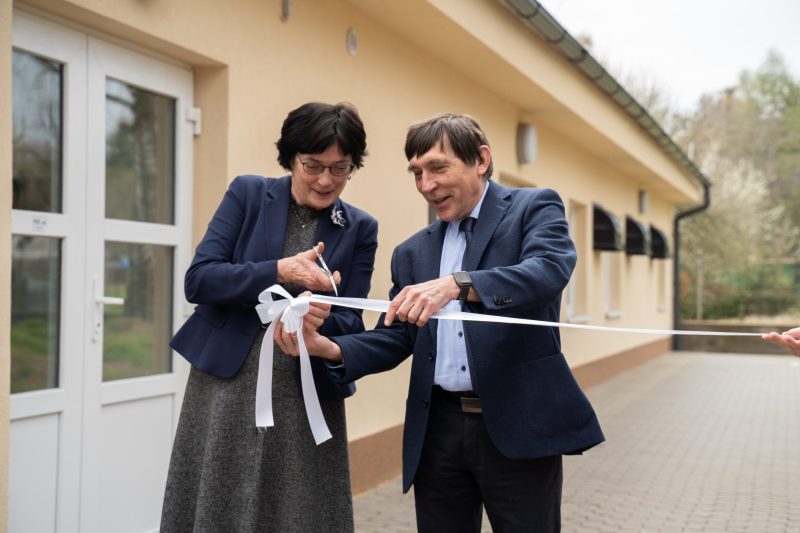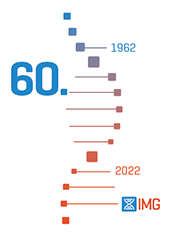
Dear Colleagues,
As usual at this time, I would like to briefly summarize the events of the past year at our Institute and what lies ahead of us in 2023. In 2022, the main task of the Institute’s management, as in previous years, was to secure the professional work environment and conditions for research within the confines of a public research organization, to secure funding for our activities, and to contribute to ensuring that the funding the Institute has received and continues to receive is translated into significant new knowledge in our research areas, in accordance with all relevant regulations. These tasks have been addressed at the level of the Institute Management Board, the Council of IMG and the Supervisory Board of IMG.
In 2022, as in the previous two years, our work was significantly impacted by the coronavirus pandemic that hit us particularly in the spring wave, but with less impact due to the immunization of most of us by vaccination or infection, and the spread of the less dangerous though more infectious SARS-CoV-2-omicron variant. A significant issue in 2022 was the energy crisis, which translated into significant increases in gas and electricity prices and consequent increases in operating costs. Due to the negative impact of the increase in energy prices, we had to take a number of cost-saving measures, similar to some other institutes of the Czech Academy of Scienes (article in Czech), which include lowering the heating temperature, banning the use of convector heaters, turning off humidification, shortening the operation of air conditioning, limiting the operation of office and laboratory space at the turn of the year, and others.
Research in 2022 continued in 26 research and research-service groups (21 in Krč, 5 in Vestec within the BIOCEV project) and in four large national infrastructures, three in Krč (Czech-BioImaging, CZ-OPENSCREEN and ELIXIR CZ) and one in Vestec (Czech Centre for Phenogenomics, CCP). Our core facilities, including the Proteomics Laboratory, a newly established joint facility of the Institute of Physiology and IMG, which is entering its third year of operation, were of great importance for the work of the research groups.
In 2022, several laboratories were moved to different research categories: the Laboratory of Haematooncology moved from the Junior to the Senior group based on the Institute Council’s assessment, the Laboratory of Genome Dynamics moved from the Guest to the Junior group, the Laboratory of Leukocyte Signalling moved from the small Junior to the Senior group and the Laboratory of Cell Motility moved from the IMG Fellows to the Junior group. In addition, following a selection procedure for a new group leader, a new Junior group, the Laboratory of Developmental Mechanobiology, was established with residence in BIOCEV, and part of the Laboratory of Structural Biology in Dejvice ceased its activities at IMG and was moved to the Institute of Organic Chemistry and Biochemistry.
As of 31 December 2022, our Institute had a total of 535 employees (471 in full-time equivalent), with 255 working in research groups, 26 in research-service groups, 27 in core facilities, 168 in large research infrastructures, and 59 in administrative and technical services, including the Office of the Director.
Our research results were presented in 120 publications in major international journals in 2022. If I were to mention the three most important ones, I would choose the work of Daniela Knizkova et al. from Ondřej Štepánek’s laboratory published in Nature Immunology, David Zapletal et al. from Petr Svoboda‘s laboratory published in Molecular Cell and Zuzana Cihlarova et al. from Hana Hanzlíkova‘s laboratory published in Nature Communications.
The activities of the research groups also led to creation of new application results and patents, which in many cases reflected cooperation with the business sphere and brought considerable financial resources to the budget of our Institute. The Institute continued the activities of the Commercialization Board and the Centre of Technology Transfer (CTT), which contributed, among other things, to the final evaluation of nine projects of the TAČR Gamma 2 programme.
In 2022, as in the previous year, we received the majority (>60%) of the funding to secure our research tasks in the form of specific funding from grant agencies and other providers. It is therefore not surprising that in 2022, we addressed 96 grant projects from various funders, including the Czech Science Foundation (40 projects), the Ministry of Education (16), the EU (9), the Ministry of Health (14) and others. On average, there are approximately four research projects per research group. In order to improve the conditions for preparing grants, controlling their progress and informing about grant opportunities, a new grant group was created within our Economy Department.
Significant attention was paid to the provision of the PhD programme, PhD conference and the 46th annual course on Advances in Molecular Biology and Genetics. In addition, a number of other courses took place, involving several research and service groups of the Institute.
The administrative and technical units, which include the Administrative Team, the Economy Department, the Building Maintenance and the Information Technology Department, are of fundamental importance for the research work of the entire Institute, and in 2022 they dealt with a number of demanding tasks, ranging from the economic management of the Institute, renovation and repair of buildings, provision of grant projects and external audits, to operation of the Institute’s computer network. An important role in most of the research projects of our Institute is held by the animal facilities located in Krč, in the BIOCEV Centre and in Koleč. Despite the partial problems associated with the coronavirus pandemic, all tasks in these services have been successfully performed.

In 2022, renovation work continued at the Koleč site, and modifications continued at the Krč site and the BIOCEV Centre in connection with the instrumentation upgrade of our large national infrastructures or preparation for work with infectious material at the CCP. Many other activities of the Institute are presented on our website and in the minutes of the IMG Council, which are available on the Institute’s intranet. A new version of the Institute website was launched in September 2022.
As in previous years, our researchers received a number of awards in 2022, including the František Běhounek Prize (article in Czech), which was awarded to Radislav Sedláček, the Lumina Quaeruntur Prize (article in Czech), which was awarded to Teije Corneel Middelkoop, and an honorary doctorate from Charles University (article in Czech), which was awarded to Jiří Bartek.

At the end of 2021, as a result of quarantine measures limiting the spread of SARS-CoV-2, we were forced to postpone the Institute conference and after-conference party. For the same reasons, we had to postpone the all-Institute meeting to start the new year in early 2022. All these activities were postponed until May 2022, when we also commemorated the 60th anniversary of our Institute in the Václav Pačes lecture. Moving it to the spring proved to be a good move and will probably be a new time tradition for organizing the scientific conference and the all-Institute party at IMG.
Finally, I would like to thank all employees of our Institute in research, administrative as well as service units for the work done so far and I look forward to more excellent collaboration and new discoveries from our research laboratories in 2023.
January 17th, 2023
Petr Dráber